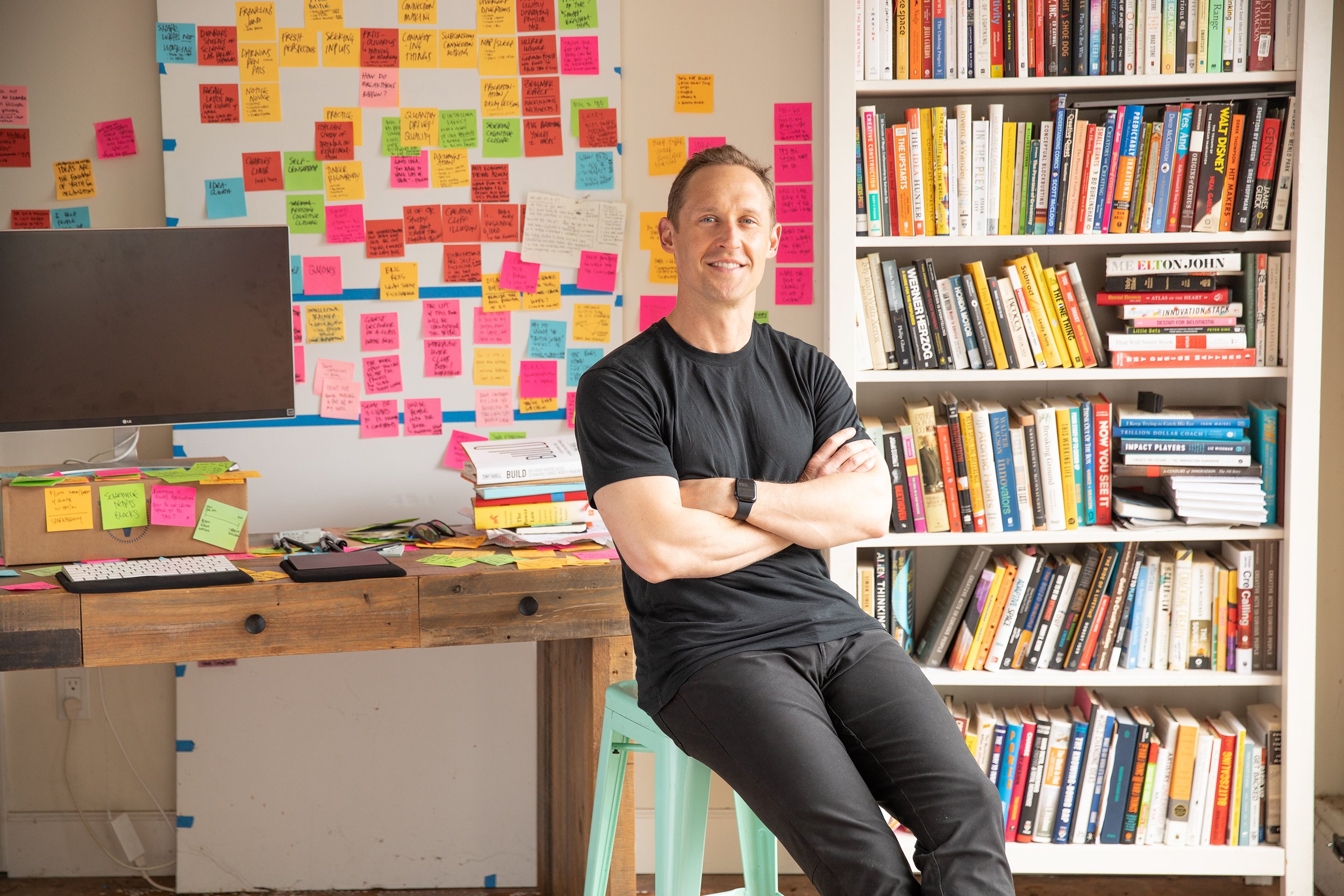
Methods of the Masters
A blog on the art & science of creative action.
Reject Your First Thought
Your first idea is rarely your best. Exploring multiple possibilities, even "dummy" options, is the key to unlocking innovation. Here’s how to maximize your creativity and elevate your problem-solving skills: reject the trap of settling for your initial thoughts.
Seek Surprises
Imagination is sparked by unexpected information. If you want to stimulate fresh thinking, seek out surprises. Here’s the inside scoop on the origins of an innovation at Mattel, which highlights the importance of welcoming an unexpected direction.
Practice Inspiration
What’s routine to accomplished “creatives” like Steve Jobs and Lecrae isn’t even on the radar for many innovators-in-training. Learning to get inspired is one of the fundamental instincts we have to develop.
Flip The Sick Bed
We shouldn’t see sick days as days we can’t work. A few of my favorite breakthroughs prove, perhaps we should see them as a gift — an opportunity to receive a new vision of the future.
Leave Your Desk
Frustrated by bad design, Steve Jobs left his desk. He didn’t do it absent-mindedly; he did it deliberately: looking for something that would unlock the riddle.
Attack Bias
How can a leader create an environment that’s hostile to bias, and one that cultivates the emergence of new ideas? Trier Bryant provides a simple framework to equip leaders with a plan of attack.
Don’t Multi-Task
Stanford Professor Clifford Nass studied hundreds of students to explore what distinguished self-proclaimed “multitaskers” from the rest of us. His conclusions, and their implications, won’t surprise you.
Be Willing To Be Bad
The best creators are constantly learning. There’s immense value in doing something you’re not good at, specifically for the sake of seeing an old thing from a fresh angle.
Roast A Problem
Some problems can be hard to see from different perspectives. William Hardaway, a design leader in higher education recommends taking a light-hearted approach to exposing unexplored angles.
Request Criticism
Leaders at Stanford and Pixar have proven that one of the most powerful ways to accelerate the quality of our ideas is to actively seek and embrace critique.
Question the Script
Bossy Cosmetics Founder and CEO Aishetu Dozie shares an insight with profound implications for finding purpose in work.
Look for Leverage
Leverage is one of the most fundamental mechanisms of value creation, yet folks look far enough beyond the balance sheet to reap its full rewards. Here’s how to bring leverage into daily life.
Don’t “Come Up With” Ideas
I was blown away by Malcolm Gladwell’s response to the question, “If you were given a month to come up with an idea for a new story, what would you do?”
Maximize Your Down Time
A message for young folks: amidst the frenzied pace of life, it’s tempting to veg out whenever you can. “Doomscrolling” is real! Instead of whittling away the hours, creative geniuses make good use of found time.
Prioritize Learning
A critical priority in a productive, creative life is to make time to think, reflect, and synthesize. Here are a few examples of how spectacular innovators have carved out the necessary space.
Embrace Surprises
Imagination is sparked by surprising information. Customer insights leader Kelly Garrett Zeigler tells a story that highlights the importance of welcoming an unexpected direction.
Schedule Unscheduled Time
When all of our time is spoken for, we short-change the longer-duration gestation required to form insights and think creatively. Bezos’ trick? He schedules unscheduled time.
Keep A Mood Board
It’s easy to dismiss tools like mood boards as “designer speak,” but the truth is, they’ve been indispensable to great thinkers seeking to capture inspiration throughout history.
Go Off-Script
Martin Luther King was singularly inventive in his oratory. This too-little-known story offers a remarkable behind-the-scenes view of one of the most famous public expressions in U.S. history.
Hug The Haters
How did André 3000 find his voice as a young artist? He and Rick Rubin dug deep into the creative process and illuminate the value of critical feedback.



















